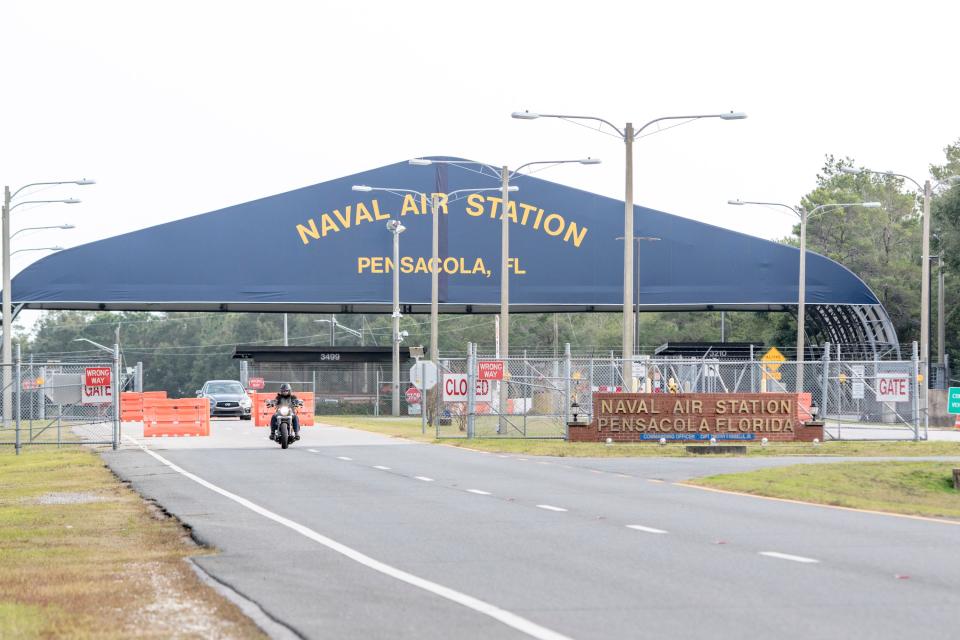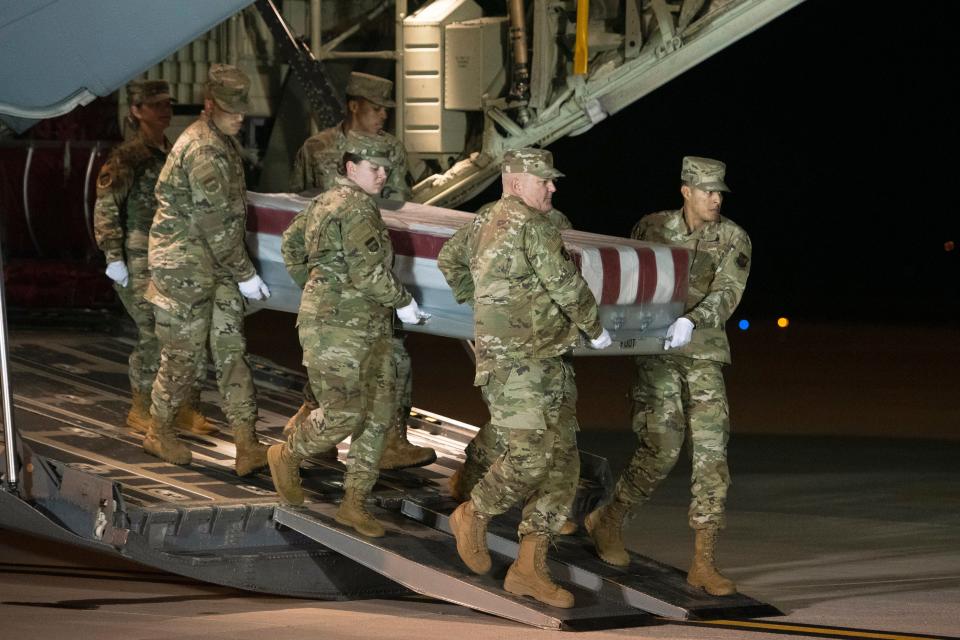After Pensacola shooting, Pentagon screening of Saudi military trainees finds no imminent threat
WASHINGTON – The Pentagon has found nothing indicating a current threat among Saudi military trainees after scouring government and commercial databases in a search for red flags about religious extremism, officials said Thursday.
The expedited screening of more than 850 Saudi students at U.S. bases was intended to thwart attacks like the Dec. 6 rampage in which a Saudi officer gunned down three others at a Navy base in Florida.
The Pentagon is working on plans for more stringent background checks for all foreign military students training in the United States, said Garry Reid, a Defense intelligence official.
The review, conducted after the shooting at Naval Air Station Pensacola, found nothing that would indicate other Saudi trainees pose a threat, according to a senior Defense official who was not authorized to speak publicly because of the ongoing investigation.

The Pentagon task force reviewing the vetting of foreign students is likely to recommend continuous screening of government and commercial databases, including social media posts, for red flags, the official said.
'A real security problem': Pensacola shooting exposes exception in US gun policy
The FBI identified the Pensacola shooter as Mohammed Alshamrani, a second lieutenant in the Royal Saudi Air Force. He was one of 852 Saudi nationals in the U.S. for military training under a security cooperation agreement with Saudi Arabia. The FBI has examined tweets attributed to Alshamrani in which he blasted U.S. support for Israel.
A local sheriff's deputy shot and killed Alshamrani. The Navy identified his victims as Airman Mohammed Hathaim, 19, from St. Petersburg, Florida; Ensign Joshua Kaleb Watson, 23, from Coffee, Alabama; and Airman Apprentice Cameron Scott Walters, 21, from Richmond Hill, Georgia. Eight others were wounded.
Saudi pilots grounded
After the attack, the Pentagon grounded Saudi pilots training in the United States. The Saudi students have resumed classroom training but not flight training with the Navy or Air Force, according to Cdr. Clay Doss, a Navy spokesman, and Ann Stefanek of the Air Force.
Since 2000, more than 1 million foreign troops have been trained by American forces here and abroad, according to Army Lt. Gen. Charles Hooper, who directs the Defense Security Cooperation Agency. That includes more than 28,000 Saudi nationals.
“International military students are here as student visitors to learn skills and professions, but also to learn about our people, our culture, and our values,” Hooper told reporters last week. “And this cannot be overstated."
"These human relationships," he said, "promote long-term defense and strategic relationships, increase our interoperability, and enable partners to contribute to our shared security objectives over the long term.”
Vetting of foreign military trainees has mainly been done by the State Department, with input from the Departments of Defense and Homeland Security, according to a senior Defense official who was not authorized to speak publicly.
Calls for enhanced vetting procedures
In a Dec. 10 memo to military leaders calling for enhanced vetting, Deputy Defense Secretary David Norquist referred to Saudi Arabia as an "essential partner" for the Pentagon. The country is the top buyer of U.S. arms and hosts a growing contingent of U.S. troops sent to the Middle East to confront Iran.
Killed saving others: This is the story of the 3 heroes lost in Pensacola Navy shooting

The new procedures will be more closely aligned to those for U.S. personnel, Norquist wrote.
There are more than 5,000 students from 150 countries training in the United States. The Pentagon does not host trainees from Iran, North Korea, Venezuela, China, Cuba or Russia, said Air Force Lt. Col. Uriah Orland, a Pentagon spokesman.
Training includes English instruction, human rights and operating equipment such as aircraft.
The Pentagon has declined to provide a list of bases where Saudis train in the United States, with the exception of a few in Florida, including Pensacola.
Orland declined to provide a copy of the U.S.-Saudi agreement that governs the instruction of Saudi students by American forces.
This article originally appeared on USA TODAY: Pensacola shooting: No red flags in review of Saudi military students

